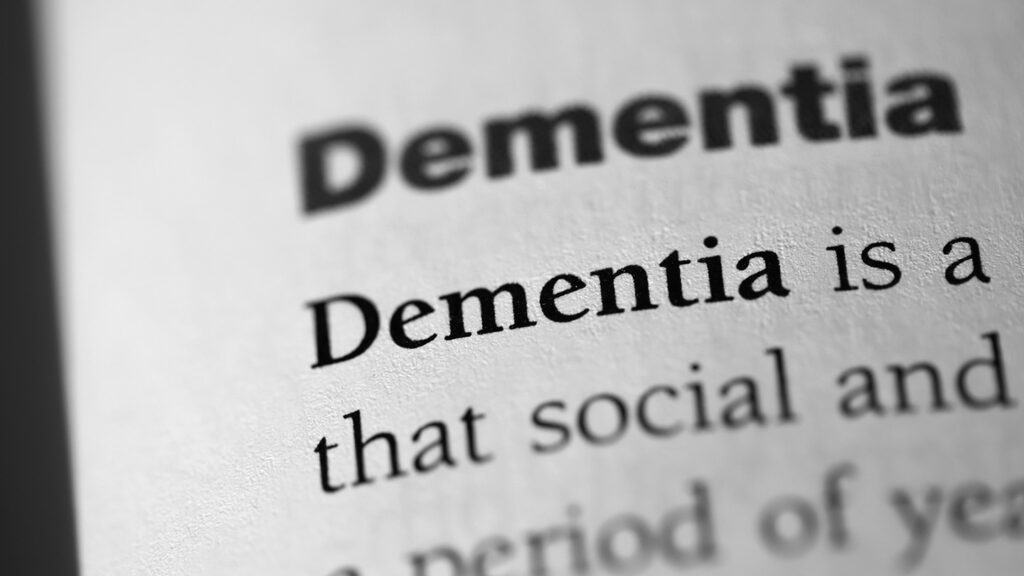
Words matter, especially in the field of dementia care, according to a panel of experts who debated the effects of language used in the senior living industry, particularly surrounding memory care.
The virtual discussion, organized by Viking Pure Solutions, addressed the “tragedy” narrative that is prevalent in assisted living and memory care due to providers’ focus on what an individual living with dementia can’t do rather than his or her abilities.
“No wonder no one wants to age or live in a senior living community,” said panelist Carrie Aalberts, digital creator of Dementia Darling. “Our field is ever-changing, ever-growing. We’re learning new things about dementia everyday, so why is our vocabulary not changing with it?”
Modeling person-centered language
Aalberts said that change needs to start with leaders modeling more positive, person-centered language, and with educating staff members and resident families about the effects of language.
“If you’re always attaching negative things to a loved one, they won’t feel positive about interacting with their loved one,” she said. “We can’t be going about that and creating more negative, tragedy stereotypes for family caregivers in the trenches. We have to give them something to work with.”
James Lee, CEO and co-founder of the San Antonio memory care community Bella Groves, said the words leaders choose frame what employees believe they should focus on during their daily interactions with residents. The activities of daily living mindset, he said, can become a “gross language.”
“We can’t use words to sell people. We have to use the right words of what our vision and our mission actually are,” he said. “We have to have a big reckoning about that.”
Pointing to his memory care community, Lee said that the terms memory care, dementia care, senior living and long-term care are nowhere to be found on his company’s signage or name tags because they can carry negative associations.
“It’s not important what words we use, but how and where we use them,” he said.
Going one step further, Aalberts said that she doesn’t “love” the term memory care, which she said brings up images of locked doors.
“Dementia is not just having trouble with memory. That’s actually one of the lesser things we see,” she said. “There is so much more to it.”
Medical terminology has its place
Lee said that many of the negative-sounding terms actually come from medical terminology. Although it might be necessary for clinicians who are assessing and measuring the effects of something to use certain terms, those terms have spilled over into use by non-clinicians in assisted living and memory care settings.
“Family members feel lost in the dementia care journey. The words we use are instructional to our teams,” Lee said. “To me, that’s the difference between using medical terms that must be precise and nonmedical professionals trying to adopt that language.”
Adria Thompson, a speech-language pathologist and founder of Be Light Care Consulting, said that she is a proponent of caregivers understanding the medical terminology about dementia. And although she acknowledged that an assisted living / memory care community is someone’s home and not a medical setting, she sees a benefit in staff members understanding the medical terminology and using it to communicate with families so that they have a better understanding of what they are seeing.
“I realized when we can separate the disease and have the terminology to talk about the disease, the underlying neurological impairments, the changes in the grain — then we see the person better,” Thompson said, adding that families that understand the medical terminology can move from being angry at their loved one to being angry at the dementia. “Senior care needs to be better equipped to have those more medical conversations with those families so that clarity is given,” she said.
Thompson said that it’s important to consider someone’s personal experiences to understand that some terms may “feel more icky than others.” Much language, she added, doesn’t make people want to move into a long-term care setting, and it’s important to help someone understand that a dementia diagnosis doesn’t have to feel like a death sentence.
“Everyone’s lived experience is different,” Thompson said. “”We are advocating on behalf of individuals with dementia for better terminology because we don’t want them to be victims, or we don’t want them to look as if their life is over.”
The Alzheimer’s Association’s inclusive language guide is a good first step to help providers get started on updating the language used within their own communities, she said.
This article originally appeared on McKnight's Senior Living





